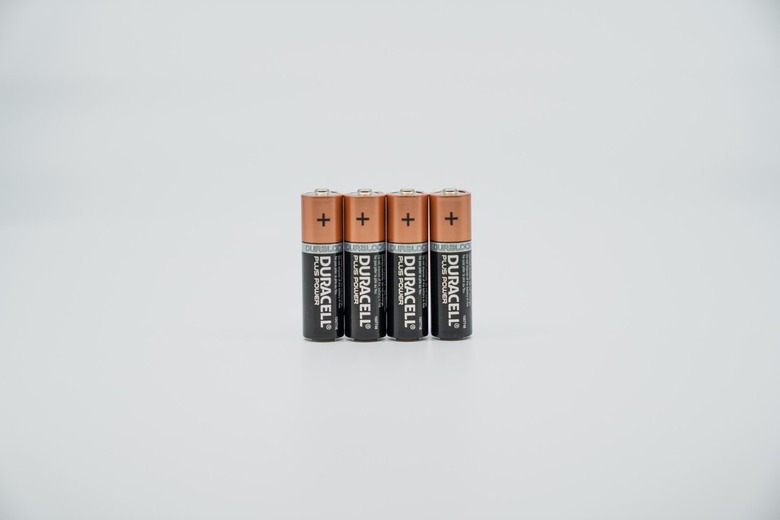If You Store Your Batteries In The Fridge, You're Doing It Wrong
You might've heard that storing your batteries in a cold environment like the fridge or the freezer can prolong their lives. Well, it's sort of true, but it's actually not such a great idea.
Very broadly speaking, batteries produce energy when the compounds inside them react to one another, converting chemical energy into electrical energy. But batteries are prone to something called "self-discharge," in which they release energy even when they're not being used.
Now, in general, chemical reactions are slowed by colder temperatures. That's why storing batteries in a cold environment, like a fridge, could slow down the rate of self-discharge — thus preserving their stores of energy-creating compounds. But there's one major issue with this method.
"The humidity in fridges and freezers causes condensation that could result in the batteries getting wet along with chances of internal corrosion and battery leakage," Jason Fladhammer, director of quality assurance at Batteries Plus, tells Hunker. "While some battery chemistries may benefit from being stored in a refrigerator, the benefits of this do not outweigh the cons."
On the other hand, extreme heat isn't great for batteries either, as it can cause their self-discharge rates to go up. What's better for the batteries is to store them at a slightly cooler room temperature — ideally 50 to 77 degrees Fahrenheit, according to Fladhammer.
Additionally, you'll want to keep batteries' ends from touching, which can cause them to short circuit, so don't toss them haphazardly into a box or a bag.
"The ideal way to store batteries is at room temperature in their packaging," says home improvement contractor Daniel Adams, founder of home shopping guide Cosier. Original packaging made by the manufacturer is designed to keep batteries safe in transit and while on the shelf at the store, so it stands to reason that it can keep batteries safe at home, too.
So, what about that pesky self-discharge? Don't sweat it too much, as most losses are negligible. Alkaline batteries, for instance, typically lose less than 2% of their charges in a year. But that's why batteries do have shelf lives, so pay attention to the expiration dates.
There are, however, two exceptions to the no-fridge rule. Nickel-cadmium (Ni-Cd) and nickel-metal hydride (NiMH) batteries have much higher self-discharge rates — up to several percent per day — so they could benefit from being stored in colder temperatures. Just make sure you put them in an air-tight container to protect them from moisture. But the best option for these types of batteries is to simply buy them as you need them, if you even need them at all (they're far less commonly used than alkaline batteries).
You can consider the fridge battery myth debunked.
